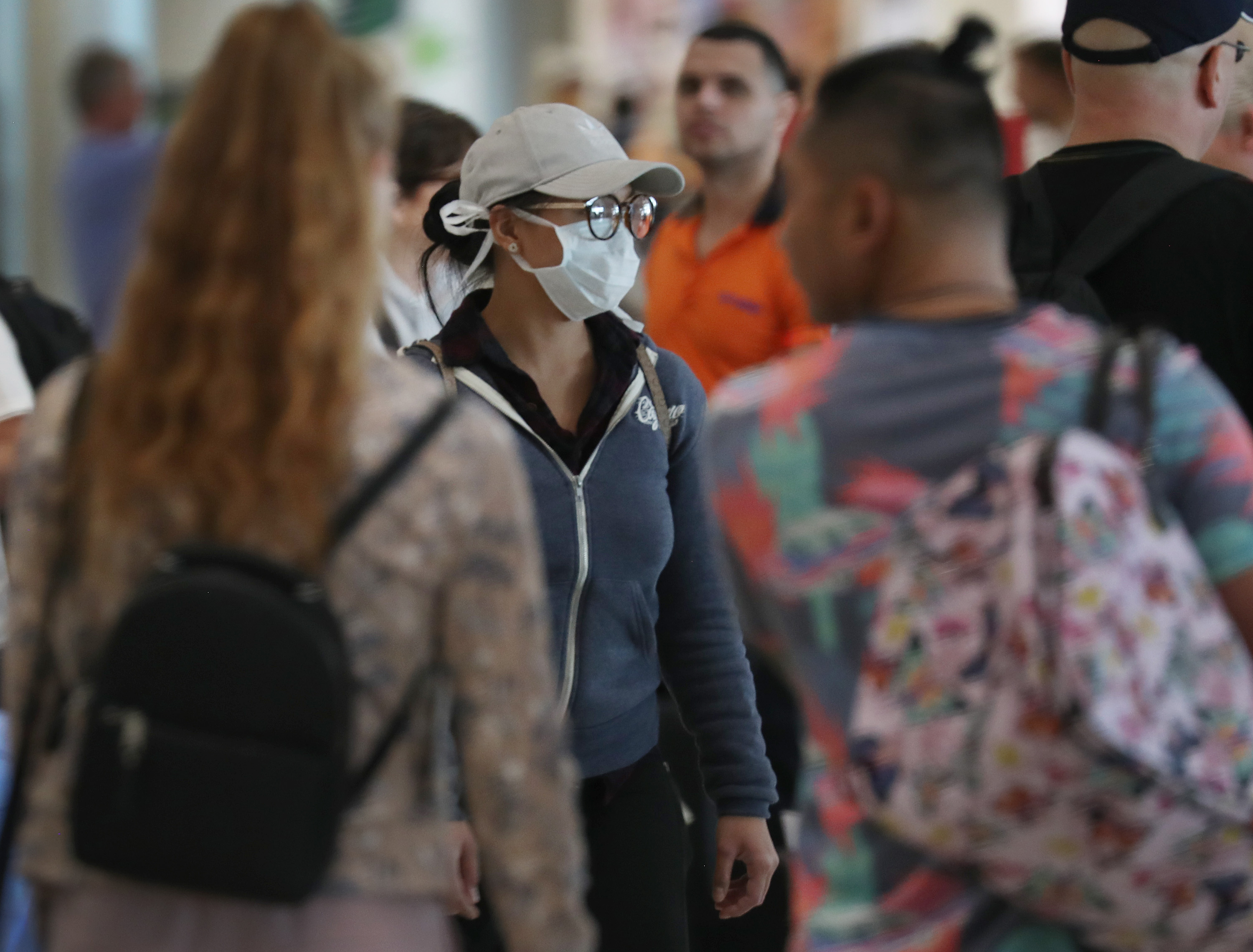Does coronavirus spread through the air? Scientists have doubts.


A free daily email with the biggest news stories of the day – and the best features from TheWeek.com
You are now subscribed
Your newsletter sign-up was successful
There isn't yet clarity regarding whether the coronavirus can survive and spread through the air. The short answer among scientists seems to be, yes, but only rarely, Stat News reports.
One study conducted by scientists at the National Institute of Allergy and Infectious Diseases tested out the hypothesis in a controlled lab setting replicating the ideal conditions for the virus, thus creating a worst-case situation for humans. It showed the virus could survive in the air for multiple hours, but that's reportedly likely an overestimate because it's not a representation of real-world conditions.
In actuality, scientists tentatively think the virus can only last under very limited conditions for a few seconds in the air at best. That, of course, leaves some room for aerosol transmissions, but "you have to distinguish between what's possible and what's actually happening," microbiologist and physician Stanley Perlman of the University of Iowa told Stat News. And what's happening still indicates the disease primarily spreads through droplets.
The Week
Escape your echo chamber. Get the facts behind the news, plus analysis from multiple perspectives.

Sign up for The Week's Free Newsletters
From our morning news briefing to a weekly Good News Newsletter, get the best of The Week delivered directly to your inbox.
From our morning news briefing to a weekly Good News Newsletter, get the best of The Week delivered directly to your inbox.
"If it could easily exist as an aerosol, we would be seeing much greater levels of transmission," said epidemiologist Michael LeVasseur of Drexel University. "And we would be seeing a different pattern in who's getting infected."
Indeed, the symptomatic infection rate, per the Centers for Disease Control and Prevention, is only 0.45 percent among patients' close contacts who are not household members, among whom it's reportedly 10.5 percent. Other research has found no coronavirus particles in the air in the hospital rooms of COVID-19 patients. All of that further suggests it's very rare for the virus to exist in the air. Read more at Stat News.
A free daily email with the biggest news stories of the day – and the best features from TheWeek.com
Tim is a staff writer at The Week and has contributed to Bedford and Bowery and The New York Transatlantic. He is a graduate of Occidental College and NYU's journalism school. Tim enjoys writing about baseball, Europe, and extinct megafauna. He lives in New York City.
-
 6 of the world’s most accessible destinations
6 of the world’s most accessible destinationsThe Week Recommends Experience all of Berlin, Singapore and Sydney
-
 How the FCC’s ‘equal time’ rule works
How the FCC’s ‘equal time’ rule worksIn the Spotlight The law is at the heart of the Colbert-CBS conflict
-
 What is the endgame in the DHS shutdown?
What is the endgame in the DHS shutdown?Today’s Big Question Democrats want to rein in ICE’s immigration crackdown
-
 Blue Origin launches Mars probes in NASA debut
Blue Origin launches Mars probes in NASA debutSpeed Read The New Glenn rocket is carrying small twin spacecraft toward Mars as part of NASA’s Escapade mission
-
 Dinosaurs were thriving before asteroid, study finds
Dinosaurs were thriving before asteroid, study findsSpeed Read The dinosaurs would not have gone extinct if not for the asteroid
-
 SpaceX breaks Starship losing streak in 10th test
SpaceX breaks Starship losing streak in 10th testspeed read The Starship rocket's test flight was largely successful, deploying eight dummy satellites during its hour in space
-
 Rabbits with 'horns' sighted across Colorado
Rabbits with 'horns' sighted across Coloradospeed read These creatures are infected with the 'mostly harmless' Shope papilloma virus
-
 Lithium shows promise in Alzheimer's study
Lithium shows promise in Alzheimer's studySpeed Read Potential new treatments could use small amounts of the common metal
-
 Scientists discover cause of massive sea star die-off
Scientists discover cause of massive sea star die-offSpeed Read A bacteria related to cholera has been found responsible for the deaths of more than 5 billion sea stars
-
 'Thriving' ecosystem found 30,000 feet undersea
'Thriving' ecosystem found 30,000 feet underseaSpeed Read Researchers discovered communities of creatures living in frigid, pitch-black waters under high pressure
-
 New York plans first nuclear plant in 36 years
New York plans first nuclear plant in 36 yearsSpeed Read The plant, to be constructed somewhere in upstate New York, will produce enough energy to power a million homes
